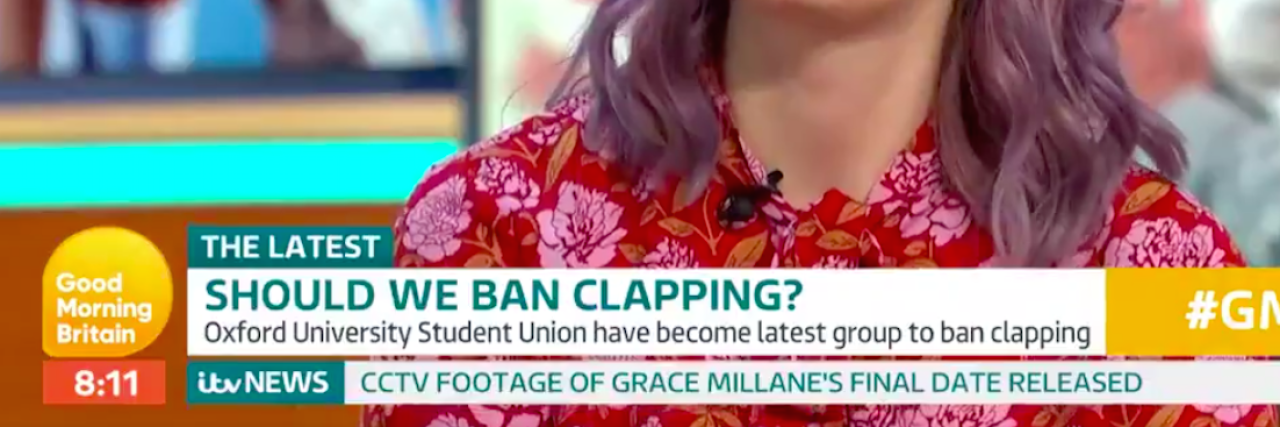Clapping. It’s something that’s part of our everyday lives, a tiny little thing most people would never think about. It’s something you probably start doing automatically after speeches and performances without giving a second thought.
For someone with sensory issues and anxiety, it can be torture.
Earlier this month, journalist Ellen Scott appeared on “Good Morning Britain” to discuss the University of Oxford announcing it would discouraging clapping at their future commencement ceremonies to be more inclusive to those with anxiety or sensitivity to loud noises. Instead of clapping, people are encouraged to use the Deaf version of clapping, which is known to most outside of that community as “jazz hands.”
“It’s not just for people with anxiety,” she said. “It’s also people who use hearing aids, clapping can be disruptive to that. [For] people with sensory processing issues it can be it very distressing and overwhelming to have those loud, sudden noises.”
On Twitter, the feedback was overwhelmingly negative. People thought the idea was taking things to the extreme. They thought it was controlling and that Scott was just being too sensitive. One Twitter user even said, “To think our grandparents and great grandparents fought it WW1 & WW2 to liberate the country for privileged snowflakes to come up with this crap..its social bullying, that’s all this is.”
Should clapping be banned? @EllenCScott says theatres should swap clapping for 'jazz hands' to be more 'inclusive' to those with anxiety or sensitivity to loud sounds.
What do you think?
#GMB pic.twitter.com/Bc5WHBbOpn— Good Morning Britain (@GMB) November 7, 2019
As someone with autism, being in a room full of clapping is very uncomfortable for me. Not only is it way too loud, but I can feel the clapping thudding in my body. It feels like a speaker has its bass turned all the way up. It can be overwhelming.
At many speaking engagements for autism conferences I’ve been to, the idea of no or alternative clapping has been shut down. The reason? Neurotypical people needed the clapping in order to gauge the crowd’s response. As someone who experiences clapping as gunshots in my ear, the decision to allow clapping was disheartening and felt very egotistical. Even in these environments of inclusivity, my sensory issues didn’t matter.
I recently went to a conference for people with autism by people with autism. We used the Deaf version of clapping the whole day and it was marvelous. It was a place where I felt like I belonged. I deserve to have that same feeling at the conferences where I present. No matter what, at places where the conversation is about autism and how to support it, there needs to be respect for us and our sensory differences.
For more public venues, like movie theaters and plays, we need options. I personally think it’s too much to ask clapping to stop entirely. I have learned to adapt to it. But, by offering a sensory-friendly showing or performance, you can make everyone feel included. By turning down lights, sounds and clapping for those performances, you can give people with sensory issues a way to experience it while still including days for the public to enjoy it at full volume.
We, as a community, need to learn how to work and live together. People with sensory issues aren’t asking for the entire world to change for us. All we want is respect and consideration. And if that means sometimes shaking your hands in the air instead of slapping them together, then please consider how much that would mean to a group of people who work very hard to make it through life.

